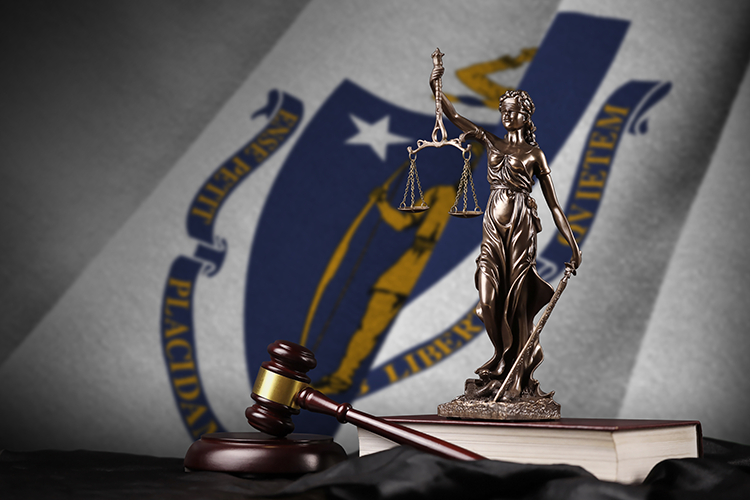Lawyer’s racist and anti-Muslim rants on social media entitle defendant to new trial, court rules

The Massachusetts Supreme Judicial Court granted Anthony J. Dew a new trial on the basis of ineffective assistance of counsel. Photo by Shutterstock.com.
The top court in Massachusetts has granted a new trial to a Black, Muslim defendant whose appointed lawyer expressed “vitriolic hatred” and racism in social media posts.
The Massachusetts Supreme Judicial Court granted a new trial for Anthony J. Dew in a June 15 opinion. Dew was represented by court-appointed lawyer Richard Doyle, who died in 2021.
The court said Doyle’s “unabashed anti-Muslim rants” online “were matched only by his equal scorn for and racism against Black persons.” Some of the online posts on Facebook were apparently made from the courthouse.
Doyle also chastised Dew for wearing religious garb, telling him not to wear “that shit” again and once refusing to talk with Dew because he was wearing a kufi prayer cap.
Doyle “did not leave his deep-seated bigotry at the courthouse door,” the court said.
The court concluded that Dew was deprived of his right to effective assistance of counsel because of the “conflict of interest inherent in counsel’s bigotry against persons of the defendant’s faith and race.”
Law360, Above the Law, the Associated Press and the Legal Profession Blog are among the publications with coverage.
Doyle had been appointed to represent Dew in February 2016. He advised Dew to accept a plea deal, leading to Dew’s June 2016 guilty plea to sex trafficking and other charges. One charge of rape was dismissed by agreement of prosecutors.
Dew was sentenced to eight to 10 years in prison followed by seven years of probation.
At the time, Dew was not aware of Doyle’s anti-Muslim posts.
One shared post, for example, showed a photograph of a pig with engorged testicles, captioned, “Dear Muslims … Kiss our big bacon balls.” Other posts referred to “goat f—ers” and “camel shaggers” and celebrated torture of a “raghead terrorist prisoner.”
Another shared post showed a poster for the movie The Waterboy with the name and face of Black football player Colin Kaepernick, who kneeled during the national anthem, superimposed on it.
The court said it couldn’t know with certainty whether Doyle’s actions during Dew’s representation were motivated by Dew’s interests. But “on the record before us, we cannot credibly assume that Doyle’s representation was not affected by his virulent anti-Muslim and racist views.”
Dew “has more than met his burden to establish that Doyle’s representation of him was impaired by an actual conflict of interest,” the court said.
Write a letter to the editor, share a story tip or update, or report an error.


